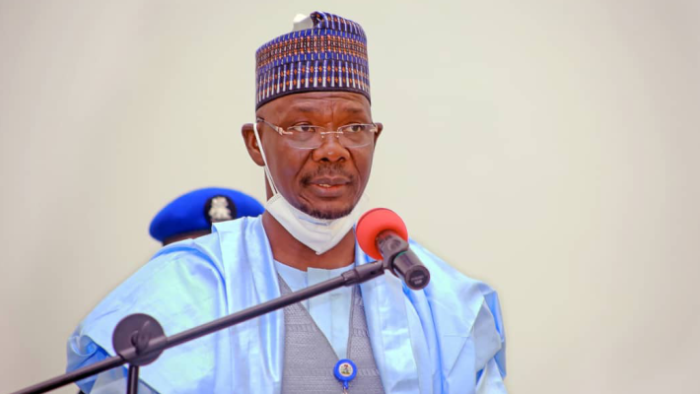Money market
CBN allocates over $111m for external debt servicing in Jan 2023
In the span of 10 months, a total of $850.42 million was spent on foreign debt service, marking a significant increase of 38 percent compared to the $2.22 billion spent in 2022.
Analysing the monthly breakdown of debt service payments, it is evident that the expenditure pattern fluctuated but remained consistently high.
In January, the Central Bank of Nigeria (CBN) allocated $112.35 million towards external debt servicing.
This amount increased to $288.54 million in February and further rose to $400.47 million in March. In April, $92.85 million was spent, followed by $221.05 million in May. June saw a decrease in spending with $54.36 million, but the trend reversed in July with a substantial payment of $641.69 million.
In August, $309.96 million was allocated, while September witnessed a higher expenditure of $439.06 million. Lastly, in October, $509.73 million was spent on debt service.Overall, these figures highlight the significant financial commitment made by Nigeria towards servicing its foreign debt.
These figures collectively account for the $3.07 billion spent on foreign debt service and are 38 percent higher than the $2.22 billion it spent in the corresponding period of 2022, highlighting a persistent strain on Nigeria’s foreign exchange resources.
This financial strain is further compounded by Nigeria’s ongoing challenge of offsetting a $7 billion forex exchange backlog.
Despite the CBN’s commitment to clearing the backlog within two weeks, only about 20 percent has been paid off after approximately three months.
This slow progress in clearing the backlog adds another complexity to Nigeria’s external debt scenario.
Direct remittance gulped $1.91 billion out of the $6.11 billion recorded between January and October 2023. This is about 31 percent of the foreign payments made within the period.
Also, it is a slight decrease of about 1 percent from the $1.93 billion recorded in the same period in 2022.
The reason for the decline is likely due to the rising cost of sending money to Nigeria due to high bank charges.
Recent reports suggest that Nigerian banks will impose an electronic money transfer levy on foreign currency inflows equivalent to N10,000 and above from January 2024.
This is anticipated to worsen the high cost of remittance, potentially diverting more forex transactions to unofficial markets.
Also, the World Bank recently noted that the forex crisis in Nigeria and other Sub-Saharan African countries has led to a diversion of forex from official to non-official channels.
Letters of credit made up 19 percent of the dollar payments made within the period under review, gulping $1.14 billion. This is a decrease of about 7 percent from the $1.23 billion recorded in 2022.
A Letter of Credit (LC) is a means of payment used for the importation of visible goods.
It is a written undertaking by a bank (issuing bank) at the request of its customer (applicant), in which the bank obligates itself to pay the exporter (seller/beneficiary) up to a specific amount within a prescribed period based on stated terms and conditions.
With Nigeria struggling with the forex crisis, there were reports of foreign suppliers rejecting letters of credit from Nigerian businesses.
Also, the current forex crisis in the country likely triggered the increase in the timelines for letters of credit in the newly approved service charter by the Governor of the CBN, Yemi Cardoso.
Nigeria spent about 277.64 percent more servicing its external debt in the third quarter of 2023, according to the latest data from the Debt Management Office (DMO).
The DMO in a statement said that external debt decreased due to the redemption of a $500 million Eurobond and payment of $413.859 million as the first principal repayment of the $3.4 billion loan obtained from the International Monetary Fund (IMF) in 2020 during Covid-19.
There have been concerns over the country’s rising debt costs amid rising debt over the years.
In its 2022 Debt Sustainability Analysis Report, the DMO warned/ that the projected government’s debt service-to-revenue ratio of 73.5 percent for 2023 was high and a threat to debt sustainability.
It noted that the government’s current revenue profile could not support higher levels of borrowing.
In a recent statement, the World Bank expressed deep concern over the escalating debt service costs that are burdening developing countries worldwide. Indemnity Gill, the World Bank’s Chief Economist, and Senior Vice President, emphasised the gravity of the situation, highlighting the potential for a widespread financial crisis if immediate and coordinated actions are not taken.
According to Gill, the combination of record-level debt and soaring interest rates has set many developing nations on a precarious path, one that could lead to economic distress and tough decisions regarding the allocation of resources.
President Bola Tinubu recently said the country could not continue to service its debt with 90 percent of its revenue. He noted that the country was headed for destruction if that continued.
Money market
Nigeria’s inflation rate rises to 33.69% in April 2024


In April 2024, the headline inflation rate rose to 33.69 percent, up from 33.20 percent in March 2024, marking an increase of 0.49 percent points according to the Nigeria Bureau of Statistics (NBS).
Comparing year-on-year data, the inflation rate in April 2024 was 11.47 percent points higher than in April 2023, where it stood at 22.22 percent. This indicates that the headline inflation rate has risen significantly over the past year.
Additionally, on a month-to-month basis, the inflation rate for April 2024 was 2.29 percent, which is 0.73 percent lower than the 3.02 percent recorded in March 2024. This suggests that the rate at which prices increased in April 2024 was slower than the rate in March 2024.
In April 2024, the food inflation rate reached 40.53 percent on a year-on-year basis, marking a substantial increase of 15.92 percentage points from the 24.61 percent recorded in April 2023. This significant rise in food inflation can be attributed to higher prices for several items including millet flour, garri, bread, prepacked wheat flour, and semovita, all of which belong to the Bread and Cereals class, as well as for yam tuber, water yam, and cocoyam and others.
For the year ending in April 2024, the average annual rate of food inflation stood at 32.74 percent, representing an increase of 9.52 percentage points over the 23.22 percent average annual rate recorded in April 2023.
Core inflation, which excludes the prices of volatile agricultural products and energy, reached 26.84 percent in April 2024 on a year-on-year basis, an increase of 6.87 percent from the 19.96 percent recorded in April 2023. The most significant price rises were observed in actual and imputed rentals for housing, motorcycle journeys, bus journeys within a city (under Passenger Transport by Road Class), consultation fees for medical doctors, X-ray photography (under Medical Services Class), and accommodation services.
On a month-on-month basis, the core inflation rate was 2.20 percent in April 2024, down from 2.54 percent in March 2024, representing a decrease of 0.34 percent. The average annual core inflation rate for the twelve months ending in April 2024 was 22.84 percent, which is 5.15 percentage points higher than the 17.70 percent recorded in April 2023.
In April 2024, the urban inflation rate on a year-on-year basis reached 36.00 percent, which is 12.61 percentage points higher than the 23.39 percent recorded in April 2023. On a month-on-month basis, the urban inflation rate for April 2024 was 2.67 percent, showing a decrease of 0.50 percentage points from the 3.17 percent seen in March 2024. The average urban inflation rate over the twelve months ending in April 2024 was 30.02 percent, marking an increase of 8.53 percentage points from the 21.50 percent reported in April 2023.
In April 2024, the rural inflation rate was 31.64 percent on a year-on-year basis, which is 10.50 percentage points higher than the 21.14 percent seen in April 2023.
On a month-on-month basis, the rural inflation rate for April 2024 was 1.92 percent, a decrease of 0.95 percentage points from the 2.87 percent recorded in March 2024. The average rural inflation rate over the twelve months ending in April 2024 was 26.38 percent, which represents an increase of 6.20 percentage points from the 20.18 percent reported in April 2023.
Money market
Governor Sule woos investors to invest in Nasarawa, assures of inclusive economy


…Counts gains of previous edition of investment summit
By Matthew Denis, Lafia
The Governor of Nasarawa state, Engr. Abdullahi Sule has taken steps to woo investors to invest in the state at the ongoing Nasarawa Investment Summit.
Delivering his opening speech, Governor Sule disclosed that the state is expanding the existing industrial, agricultural and mining sectors towards a better economy.
He said, “What we are witnessing today will further expand our existing pathways to leverage on the industrial, agricultural and mining sectors towards enhancing inclusive and sustainable wealth creation and economic prosperity.
“It is with a sense of fulfillment and responsibility that I address you today on the occasion of the Nasarawa Investment Summit, 2024.
“I must acknowledge our most cherished investors and other development partners, who are here to be part of this auspicious occasion. I have no doubt that the coming together of these distinguished and eminent personalities will, no doubt offer us the opportunities to continue to map the future of our State economic landscape in our relentless commitment to explore business opportunities and forge investment partnerships across business endeavour.”
The Governor stressed that it is pertinent to remind you that Nasarawa State organised the first edition of the Nasarawa Investment Summit in 2022 under the theme “Diamond in the Rough: The Making of a New Investment Frontier,” aimed at ushering investment and showcasing our mineral resources to potential investors.
“I am happy to state that the outcome of the Summit informed the influx of investors into the State Who are variously harnessing our God-given endowment.
“Interestingly, the recently commissioned Avatar New Energy Materials Company Limited in Nasarawa State performed by Mr. President, the ASGARD Mining and Processing Plant, Karu, the Nasarawa Technology Village Project in Karu, as well as other numerous investments being carried out in the State were all informed by the outcome of the Summit conducted in 2022.
“It is also heartwarming to state that the Federal Government commissioned the spud-in of the Ebenyi-A Oil Well in Obi Local Government Area of the State. The discovery of Oil and Gas and its subsequent exploration and exploitation will further boost the economic prosperity of our dear country and put Nasarawa State among the comity of Oil producing States.
“I, therefore, call on the investors on Oil and Gas to take advantage of the exploration activities to begin to invest in the sector for the benefit of the society.”
“To ensure full utilisation of our potentials, we have pledged to sustain the Investment Summit in order to further showcase other solid mineral resources which are yet to be identified by interested investors. This is why the theme of this year’s Summit is deliberately coined as ‘The Industrial Renaissance,’ having built some of the key fundamentals required to drive our industrial agenda and present other minerals to our potential investors.”
He explained that the staging of the 2024 Nasarawa Investment Summit,which we are witnessing today will further expand our existing pathways to leverage on the industrial, agricultural and mining sectors towards enhancing inclusive and sustainable wealth creation and economic prosperity.
“It is pertinent to point out that, as a State, we have been deliberate in stimulating our economy, building human capacities, creating wealth and generate employment to our people. It is for this reason that we have adopted our policy document christened ‘Nasarawa Economic Development Strategy (NEDS)’ as a driving force towards the initiation and implementation of various programmes and policies which we have achieved so far.
“I must acknowledge that with the assemblage of the experienced and versatile resource persons to engage the participants on the topics earmarked for discussion, I believe that the outcome of this Summit will go a long way towards actualizing our dream of industrialising Nasarawa State and position it as a leading champion.”
While applauding President Bola Ahmed Tinubu for his sustained effort in driving the Nigeria economy to prosperity, he said, “I assure Mr. President of our unalloyed loyalty and continued support in order to take our country to greater heights.”
“Let me as always, call on our development partners to continue to invest in Nasarawa State with the view to open the frontiers of economic prosperity for the benefit of all. Indeed, Nasarawa means business.”
Money market
CBN launches strategy to double remittances, grants AIP to 14 new IMTOs


The Central Bank of Nigeria (CBN) has activated plans to double foreign-currency remittance flows through formal channels by granting 14 new International Money Transfer Operators (IMTOs) Approval-in-Principle (AIP).
-
Finance4 months ago
Court orders Sen. Victor Umeh to repay N136m bank debt to AMCON
-



 Abuja Update3 months ago
Abuja Update3 months agoUNDP, FG partnership needed to achieve inclusion, equity- Minister
-
capital market2 years ago
Rt.briscoe, FBNH, Others halts negative performance of stock market
-
Abuja Update2 months ago
Banks drive stock market performance with N147bn gain
-



 Health1 month ago
Health1 month agoCapacity training will reduce migration of health workers- NPHCDA
-



 Business3 weeks ago
Business3 weeks agoTingo Group unveils Tingo Electric, Tingo Cola drink at Lagos launch
-
Submission Guidelines4 months ago
CALL FOR SUBMISSIONS: POETRY COLUMN-NND
-
News4 months ago
Oil thieves sponsoring malicious media campaign against Navy – Spokesman














